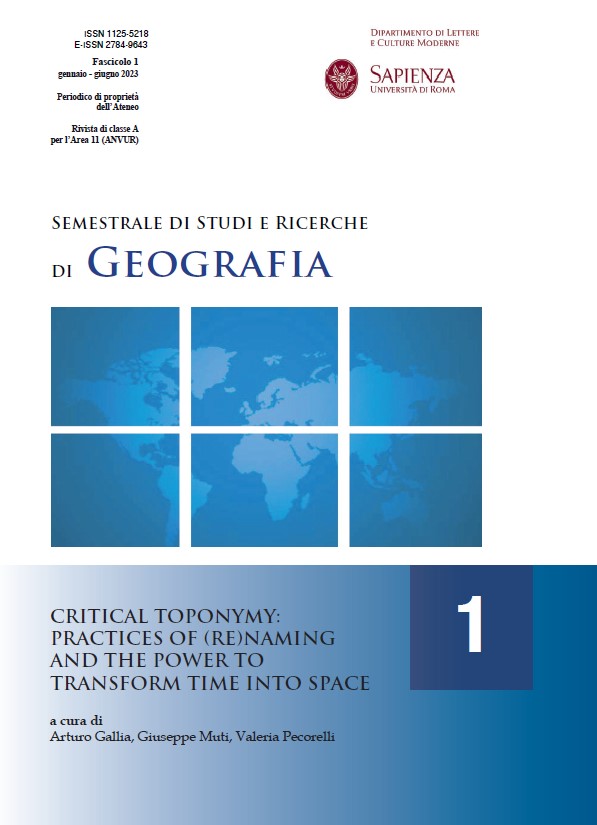Could Raffestin have revolutionized toponymy?
DOI:
https://doi.org/10.13133/2784-9643/18344Keywords:
critical toponymy, multi-toponymy, urban Africa, relational toponymyAbstract
Raffestin denounced the « totalitarianism of the eye ». He was referring to the propensity of geography to focus on morphological objects, the most visible and obvious, rather than on the relationship of societies to systems of forms. By analogy, the « dictatorship of the legible » covers the fascination of critical toponymy with official names – those that can be easily read on maps, city plans, or street signs, to the detriment of informal, vernacular, or popular toponymies. To take these toponymies seriously is to question the presuppositions of a field of research that overestimates the power of official toponymy and its hegemony. The power relationships that are played out in the tension and interactions between heterogeneous systems can only be revealed by studying the relationship that societies have with all the toponymic resources at their disposal.
Downloads
Published
Issue
Section
License
Copyright (c) 2023 Semestrale di studi e ricerche di geografia

This work is licensed under a Creative Commons Attribution 4.0 International License.
Gli autori che pubblicano su questa rivista accettano le seguenti condizioni:- Gli autori mantengono i diritti sulla loro opera e cedono alla rivista il diritto di prima pubblicazione dell'opera, contemporaneamente licenziata sotto una Licenza Creative Commons - Attribuzione che permette ad altri di condividere l'opera indicando la paternità intellettuale e la prima pubblicazione su questa rivista.
- Gli autori possono aderire ad altri accordi di licenza non esclusiva per la distribuzione della versione dell'opera pubblicata (es. depositarla in un archivio istituzionale o pubblicarla in una monografia), a patto di indicare che la prima pubblicazione è avvenuta su questa rivista.
- Gli autori possono diffondere la loro opera online (es. in repository istituzionali o nel loro sito web) prima e durante il processo di submission, poiché può portare a scambi produttivi e aumentare le citazioni dell'opera pubblicata (Vedi The Effect of Open Access).


